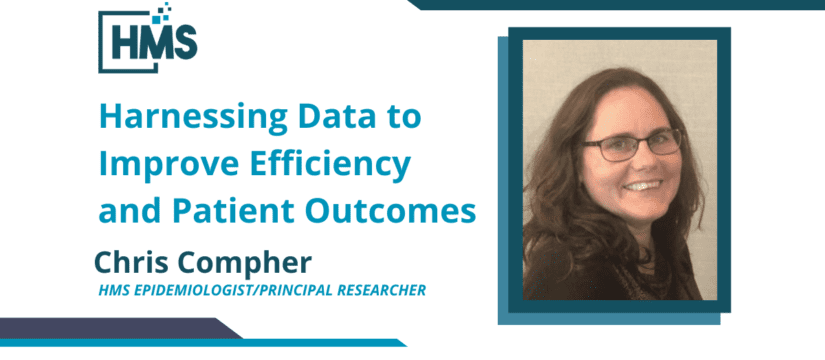Data can often seem misleading, confusing, sometimes even incomprehensible. But data is also powerful and a vital component of government agencies’ important work. At Healthcare Management Solutions, LLC (HMS), we use data to truly understand what we’re seeing. As an HMS Epidemiologist/Principal Researcher Chris Compher explains, “Data collection is incredibly important because it is our way of telling stories. You might have an opinion about the way the world is, but until you actually collect the data, you don’t necessarily know whether or not your perception is accurate.”
How does data collection and analysis play a role in HMS’s work?
HMS uses data both for our contract work as well as our internal processes. It helps us manage our workflow efficiently, so we’ll know who’s surveying, where we are surveying, and how many surveys we are conducting. But it also gives us insights into patients, healthcare, and whether or not we’re making the impact we intended.
For example, when we provide technical assistance, the data we collect allows us to evaluate what’s going on at state agencies across the United States. We compare state-to-national data as well as state-to-state, which allows us to identify gaps or issues states might have that we can assist with, helping them to focus their resources and efforts on the most problematic or troubling areas and concerns.
What are some of the challenges that arise with data collection and analysis?
One of the biggest issues in collecting and analyzing data is the problem of bias. People have opinions, and those opinions can sometimes negatively — although often subconsciously — influence data collection. Someone can believe in something so strongly that they want a story to be told in a certain way, which may affect how it’s presented to such an extent that it doesn’t reflect the actual story. At HMS, we diligently ensure that biases are not affecting the real picture. In other words, we make sure the stories we tell with data are true.
Another challenge is making sure data is being used to serve the common good. The information we provide needs to not only be accurate but also relevant so that it can be used effectively to make policy and healthcare changes.
At HMS, our surveyors are held to a high standard, both for avoiding bias and for generating accurate and useful information on which decision-makers and others can act.
What needs to change? How can we use data more effectively to create real change?
We have to start with a shift in focus, from simply collecting data to thinking about how we’re going to use it in a meaningful way. Recording and documenting are essential, but it’s only the first step. We next have to think about how we’re going to use the data we’ve collected for evaluation and to effect change.
Data in and of itself is sterile and unemotional. In order for the findings in the data to resonate with people on a human, heartstring-pulling level, we have to connect it to personal stories. Effective storytelling is crucial. We must ask: “How am I going to use this data to make improvements in healthcare? In government agencies? At the state level?” If information can tell a story to people in a non-analytical way without a lot of jargon, it has the ability to move hearts and minds forward.

